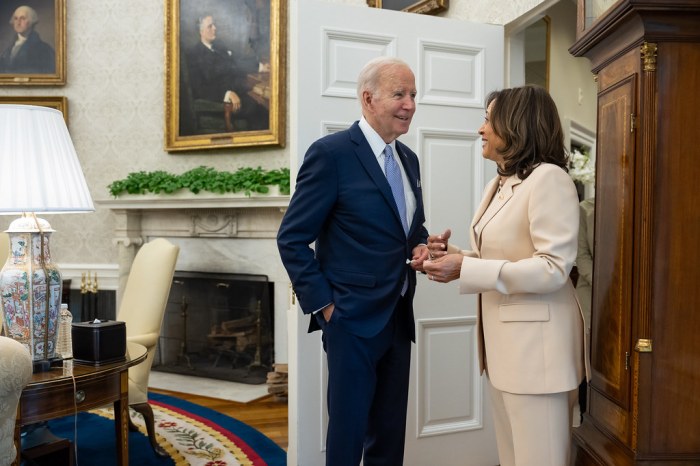In fairness to Rick Santorum, he did not equate homosexuality with bestiality and pedophilia in a 2003 interview when he was commenting on Lawrence v. Texas, the US Supreme Court decision that struck down sodomy laws across the country.
“In every society, the definition of marriage has not ever, to my knowledge, included homosexuality,” he told the Associated Press that year. “That’s not to pick on homosexuality. It’s not, you know, man on child, man on dog, or whatever the case may be.”
In fairness to the rest of us, Santorum did equate homosexuality with several other things he thinks are bad.
“If the Supreme Court says that you have the right to consensual sex within your home, then you have the right to bigamy, you have the right to polygamy, you have the right to incest, you have the right to adultery, you have the right to anything,” he said.
All these things are a threat to traditional families, the candidate for the Republican nomination for president said then.
“Whether it’s polygamy, whether it’s adultery, whether it’s sodomy, all of those things, are antithetical to a healthy, stable, traditional family,” he said.
In 2003, this was the newer, bolder Rick Santorum, whose flair for outspokenness grew only slowly during his first decade in elected office. Then in his second term representing Pennsylvania in the US Senate, some pundits argued that the socially conservative positions he more visibly embraced cost him his seat in 2006.
Having effectively tied Mitt Romney, the former Massachusetts governor, for first place in the January 3 Iowa caucuses after advocating those positions to voters there, Santorum clearly believes they will win him the 2012 GOP presidential nomination.
Queer pundits and groups, including gay Republicans, have universally condemned Santorum’s Iowa win. Santorum, whose campaign did not respond to an email seeking comment, was not always the hard right-winger he is today.
Born in Virginia, Santorum, who is 53, was raised in western Pennsylvania. He earned his undergraduate degree, an MBA, and his law degree from universities in that state. For a time, Santorum worked for a Republican state senator who was pro-choice.
“I really never took the time to consider what my own positions were,” he told the Washington Post in a 2005 profile. While published reports suggest that he decided on a career in politics early, the specifics of that career path were unsettled.
The Post cited a political science professor who said that Santorum once asked him “whether it would be better for a politician in Pennsylvania to run as a Democrat or Republican.” The professor said a Republican would face less competition. In 1990, Santorum ran as a Republican for a seat in the US House of Representatives that Democrat Doug Walgren had held since 1976. Santorum won the election by running what Roll Call, the Capitol Hill newspaper, called “a generic anti-incumbent campaign.”
Santorum served two terms in the House and first won his Senate seat in 1994. A review of legislation he sponsored in his early years shows he was not a champion of socially conservative positions. He was best known as a member of the Gang of Seven, a group of House freshmen who used a scandal over members being allowed to overdraw their House bank accounts without penalty to promote internal reforms. That scandal contributed to the Republican takeover of the House in 1994.
In 1993, Santorum voted for Don’t Ask, Don’t Tell, the policy that barred gay men and lesbians from the military. In the Senate in 1996, he voted for the Defense of Marriage Act (DOMA), as did 84 of his Senate colleagues, and against a parliamentary maneuver that tried to substitute DOMA with legislation that barred discrimination based on sexual orientation in employment. DOMA, which bars federal recognition of same-sex marriages and purports to allow states to do the same, passed and the parliamentary maneuver failed. Santorum was a DOMA co-sponsor, but a quiet one.
In 1996 and 1997, Santorum began to emerge as a leading social conservative. He was a vocal proponent of anti-abortion legislation in the Senate. In 1998, he opposed James Hormel’s nomination to be ambassador to Luxembourg, a predominantly Roman Catholic nation, because Hormel is gay. He told the Hill, another Capitol Hill newspaper, that the nomination is “a complete insult to Catholics. It’s like nominating someone who is anti-Jewish for the ambassadorship to Israel.”
Santorum is Catholic and has strong ties to conservative factions within that church.
Also in 1998, James Dobson, then the head of the right-wing Focus on the Family, called out Republicans, saying they had betrayed Christian conservatives. He named Santorum as one of those who had committed that betrayal. So in his second Senate term, when Santorum was the chairman of the Republican Conference, the third-ranking GOP post, he appears to have worked hard to repair that relationship.
Santorum was one of three Republican senators who led the fight for the Federal Marriage Amendment (FMA), an amendment to the US Constitution that would ban gay marriage, legislation that was much sought by Christian conservatives.
In the run up to the 2004 FMA vote, Santorum called gay marriage “the death knell of our society” that would lead to “the ultimate breakdown of the traditional family and the meaning of that to future generations of children.”
On the Senate floor, he said, “I would argue, the future of our country hangs in the balance because the future of the American family hangs in the balance… Isn’t that the ultimate homeland security, standing up and defending marriage, defending the right for children to have moms and dads, to be raised in a nurturing and loving environment? That is what this debate is all about.”
And so in 2005, Santorum, the man who had once asked if he should run as a Democrat or a Republican, could say of James Dobson in one published report, “I have a very close relationship with Jim. I consider him a friend.”



































